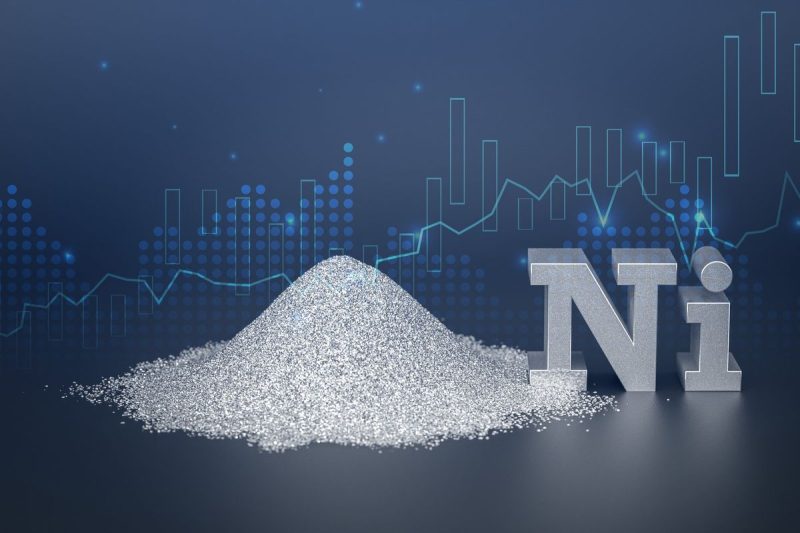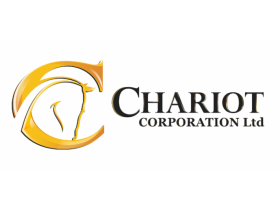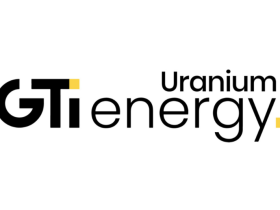Nickel has been trending down since early 2023, and bearish sentiment still pervades the market in 2024. Supply is expected to outflank demand over the short term, but the longer-term outlook for the metal is strong.
Demand from the electric vehicle industry is one reason nickel’s future looks bright further into the future.
1. EV Nickel (TSXV:EVNI)
Year-to-date gain: 96.67 percent; market cap: C$53.03 million; current share price: C$0.59
EV Nickel’s primary project is the 30,000 hectare Shaw Dome asset in Ontario. It includes the high-grade W4 deposit, which has a resource of 2 million metric tons at 0.98 percent nickel for 43.3 million pounds of Class 1 nickel across the measured, indicated and inferred categories. Shaw Dome also holds the large-scale CarLang A zone, which has a resource of 1 billion metric tons at 0.24 percent nickel for 5.3 billion pounds of Class 1 nickel across indicated and inferred categories.
EV Nickel is also working on integrating carbon capture and storage technology for large-scale clean nickel production, with majority funding from the Canadian government and Ontario’s provincial government. In late 2023, the company announced it was moving its carbon capture research and development to the pilot plant stage.
The Canadian nickel exploration company’s share price started off the year at C$0.30 before steadily climbing to reach a year-to-date high of C$0.69 on February 12.
2. Fathom Nickel (CSE:FNI)
Year-to-date gain: 34.78 percent; market cap: C$19.53 million; current share price: C$0.115
Exploration-stage Fathom Nickel says its mission is to target magmatic nickel sulfide discoveries to support the global electric vehicle market. The company’s Saskatchewan-focused portfolio includes the Albert Lake project, which holds nickel, copper and platinum-group metals (PGMs), and the Gochager Lake nickel-copper project. The 90,000 hectare Albert Lake project hosts the historic and past-producing Rottenstone deposit.
Fathom kicked off its winter exploration program at Albert Lake during the first week of February. According to the company, the first hole will target a ‘very strong, very prominent conductor dominating the northeastern section of the figure.’ Fathom will also aim to further test and potentially find the source of a multi-element soil geochemical anomaly at the Tremblay-Olson claims area. It plans to complete five to seven drill holes to that end.
The company’s share price has moved from C$0.12 at the start of the year to a year-to-date high of C$0.21.
3. Sama Resources (TSXV:SME)
Year-to-date gain: 20 percent; market cap: C$25.31 million; current share price: C$0.12
Sama Resources’ focus is on the Samapleu nickel-copper-PGMs project in Côte d’Ivoire, West Africa, which includes the Samapleu and Grata deposits. Samapleu is a joint venture between Sama (70 percent) and Ivanhoe Electric (30 percent); Ivanhoe Electric has the option to purchase up to a 60 percent interest in the project.
In the first few weeks of the year, Sama has already dropped a few press releases. The company shared highlights from its ongoing 3,800 meter winter drilling program at the Yepleu prospect. Importantly, the work has confirmed that newly discovered nickel-copper-PGMs mineralization measures 500 by 400 meters, is near surface and open in all directions. Drill results from the program so far include drill hole S-349, which intersected 53 meters of combined mineralization layers grading 0.29 percent nickel, including 2.6 meters at 1.31 percent nickel and 0.95 percent copper.
Sama’s share price started off the year at C$0.11 before jumping to a year-to-date high of C$0.14 on February 12.
4. FPX Nickel (TSXV:FPX)
Year-to-date gain: 13.33 percent; market cap: C$93.15 million; current share price: C$0.34
FPX Nickel is developing its flagship development-stage Baptiste nickel project in the Decar Nickel District of BC. The property is host to four targets, including the Baptiste deposit and the Van target, the former of which is the company’s primary target. The company is targeting both the stainless steel and battery-grade nickel markets.
FPX Nickel is currently conducting environmental baseline activities, and preparing for a feasibility study at Baptiste. In late January, the company announced a C$14.4 million strategic investment from Sumitomo Metal Mining Canada, which is a wholly owned subsidiary of Sumitomo Metal Mining (TSE:5713).
Through CO2 Lock, its majority owned subsidiary, FPX Nickel is pursuing carbon capture and storage technology as a means of lowering the carbon footprint associated with mining battery metals. In late February, CO2 Lock completed the first-ever successful injection of CO2 into a brucite-rich ultramafic mineral project as a part of a comprehensive field program taking place at its SAM site in Central BC. “This achievement marks a significant milestone in the development of CO2 Lock’s innovative in-situ CO 2 mineralization technology,” states a press release.
Shares moved from a year-to-date low of C$0.27 in mid-January to a year-to-date high of C$0.40 on February 5.
5. Canada Nickel (TSXV:CNC)
Year-to-date gain: 11.2 percent; market cap: C$240.57 million; current share price: C$1.39
Canada Nickel Company has honed its efforts on its wholly owned flagship Crawford nickel sulfide project in Ontario’s productive Timmins Mining Camp. A bankable feasibility study demonstrates a large-scale nickel deposit with a mine life of 41 years, an after-tax net present value of US$2.5 billion and an internal rate of return of 17.1 percent. The company has said it is targeting both the electric vehicle and stainless steel markets.
A few big-name companies hold significant ownership positions in Canada Nickel, including Agnico Eagle Mines (TSX:AEM,NYSE:AEM), which holds an 11 percent stake, and Anglo American (LSE:AAL,OTCQX:AAUKF), which has a 7.6 percent stake. In February of this year, battery and electronic materials manufacturer Samsung SDI (KRX:006400) made an equity investment of US$18.5 million for an 8.7 percent ownership stake in the company.
Canada Nickel’s share price was trading at C$1.14 before jumping to a year-to-date high of C$2.24 on January 16.
In early February, the company shared that its wholly owned subsidiary, NetZero Metals, is planning to develop a nickel-processing facility and stainless steel and alloy production facility in the Timmins Nickel District. Canada Nickel’s share price had slid to C$1.35 on February 5 before rising up to C$1.46 on February 9 following the news.
Later in the month, Canada Nickel shared successful results from initial infill drilling at its 100 percent owned Bannockburn property, and announced a new discovery at the Mann property. Mann is a joint venture with Noble Mineral Exploration (TSXV:NOB,OTCQB:NLPXF) in which Canada Nickel can earn an 80 percent interest.
FAQs for nickel investing
How to invest in nickel?
There are a variety of ways to invest in nickel, but stocks and exchange-traded products are the most common. Nickel-focused companies can be found globally on various exchanges, and through the use of a broker or a service such as an app, investors can purchase companies and products that match their investing outlook.
Before buying a nickel stock, potential investors should take time to research the companies they’re considering; they should also decide how many shares will be purchased, and what price they are willing to pay. With many options on the market, it’s critical to complete due diligence before making any investment decisions.
Nickel stocks like those mentioned above could be a good option for investors interested in the space. Experienced investors can also look at nickel futures.
What is nickel used for?
Nickel has a variety of applications. Its main use is an alloy material for products such as stainless steel, and it is also used for plating metals to reduce corrosion. It is used in coins as well, such as the 5 cent nickel in the US and Canada; the US nickel is made up of 25 percent nickel and 75 percent copper, while Canada’s nickel has nickel plating that makes up 2 percent of its composition.
Nickel’s up-and-coming use is in electric vehicles as a component of certain lithium-ion battery compositions, and it has gotten extra attention because of that purpose.
Where is nickel mined?
The world’s top nickel-producing countries are primarily in Asia: Indonesia, the Philippines and New Caledonia make up the top three. Rounding out the top five are Russia and Canada. Indonesia’s production stands far ahead of the rest of the pack, with 2023 output of 1.8 million MT compared to the Philippines’ 400,000 MT and New Caledonia’s 230,000 MT.
Significant nickel miners include Norilsk Nickel (OTC Pink:NILSY,MCX:GMKN), Nickel Asia, BHP Group (NYSE:BHP,ASX:BHP,LSE:BHP) and Glencore (LSE:GLEN,OTC Pink:GLCNF).
Securities Disclosure: I, Melissa Pistilli, hold no direct investment interest in any company mentioned in this article.





